Nicholas’s story: ‘I’ve been locked up for 10 years because I’m autistic. Is a chance at life too much to ask?’
Special Report: For more than 10 years, this 28-year-old has been trapped in dementia care units and A&E wards, abused by nurses and held in padded rooms. In all this time, he’s never had the care he needs. Rebecca Thomas reports

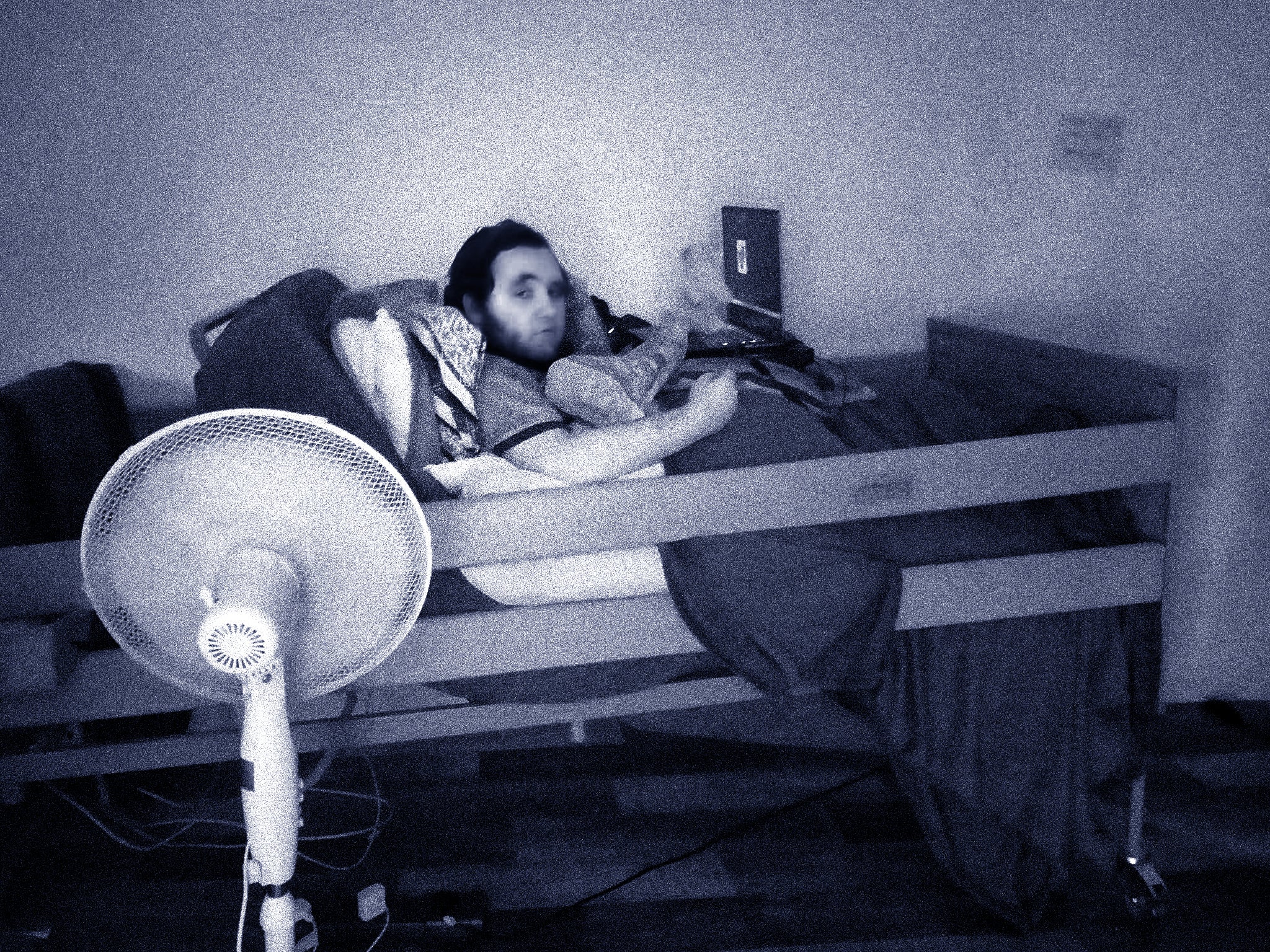
Your support helps us to tell the story
From reproductive rights to climate change to Big Tech, The Independent is on the ground when the story is developing. Whether it's investigating the financials of Elon Musk's pro-Trump PAC or producing our latest documentary, 'The A Word', which shines a light on the American women fighting for reproductive rights, we know how important it is to parse out the facts from the messaging.
At such a critical moment in US history, we need reporters on the ground. Your donation allows us to keep sending journalists to speak to both sides of the story.
The Independent is trusted by Americans across the entire political spectrum. And unlike many other quality news outlets, we choose not to lock Americans out of our reporting and analysis with paywalls. We believe quality journalism should be available to everyone, paid for by those who can afford it.
Your support makes all the difference.In the windowless room where he spends 24 hours a day, lying in the bed he cannot leave, Nicholas Thornton reaches for his laptop and begins to type. It is the only way he can communicate.
The 28-year-old is bedbound, unable to move and unable to speak, the effects of more than 10 years trapped in hospitals and units that cannot care for his needs. Nicholas, who is autistic and has a learning disability, has been moved again and again since he was first sectioned aged 16, ferried between units hundreds of miles from his family’s home in Essex.
His story comes as a four-year-long independent inquiry, led by House of Lords peer Sheila Hollins, condemns the government for failing to address the “systemic” failures that have led to people with learning disabilities being locked away in hospitals in solitary confinement for up to 20 years.
Her damning report warns that the failure to act has meant that patients are being “warehoused” in “inhumane” hospital wards, despite government pledges to stop using these facilities for people with autism and learning disabilities in its long-delayed Mental Health Bill – which the government again failed to include in Tuesday’s King’s Speech.
Nicholas has been held in a care home for people with dementia, where other patients were able to wander into his room and poke at him. He has been held in units for substance abusers, and on mental health wards alongside prison inmates who had been brought there for treatment. He has been stripped naked and left on a bare bed by care staff.
Watch Nicholas’s story in On The Ground: Trapped In The Care System
This is not the life Nicholas hoped for. He wanted to go and watch West Ham, his favourite football team; to travel to Mexico on holiday; to spend Mother’s Day with his mum Emma, who sits alongside him as he types.
But now, after 10 years of unsuitable care have exacerbated his speech and mobility issues, Nicholas is one of thousands who have been institutionalised and forced into inappropriate care, despite promises from the government.
Reaching for his laptop with his left hand, the only one he can move, Nicholas writes: “Why can’t I have a life?
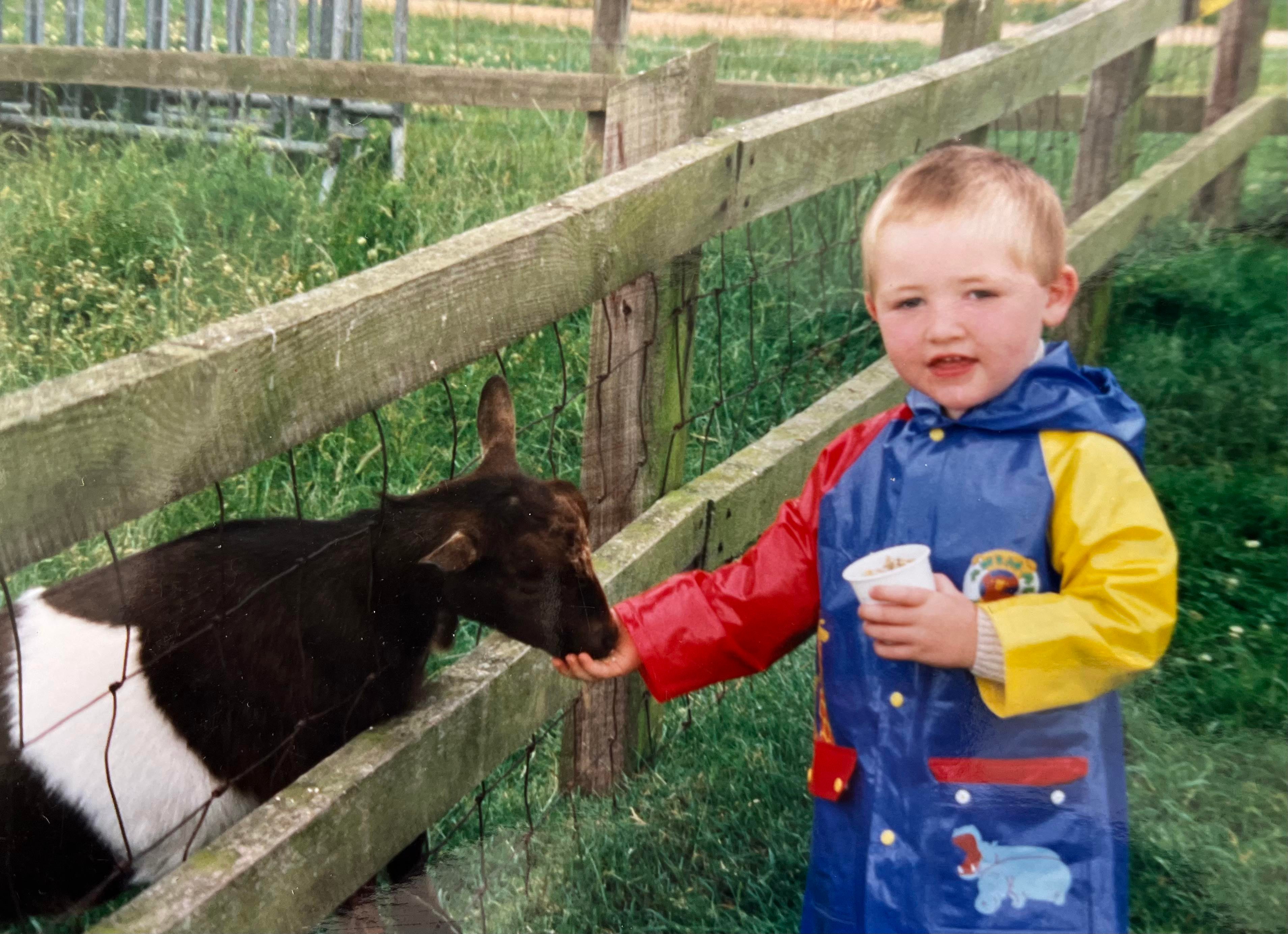
“My only crime is being born with autism and a learning disability. Why do I have to live a life of being punished like this, my freedom taken away for being born, moved all around the country and abused?
“Why are people with autism and learning disabilities treated like criminals? Is it too much to ask for the right care, for the chance of a life?”
Now Nicholas has been told that his laptop – his only connection to the world outside this windowless ward – may be taken away, as it is unsafe for him to have wires in his room. He wants to tell his story while he still can.
Held in padded rooms
Nicholas was diagnosed with autism as a young child after bright lights and sounds distressed him to the point that he could go into meltdowns. His mother says that, despite this, he was a happy child growing up in Maldon, Essex, who loved to play bingo with her and enjoyed sailing and archery. His brother Seb, 26, says Nicholas loved a joke, adding: “He used to be an extremely adventurous person and liked trying different things.”
He used to be an extremely adventurous person and liked trying different things
But in 2009, at the age of 14, Nicholas’s nightmare began when he started at a special educational needs residential school in Hampshire and was bullied. “I refused to go back into the shared house until they sorted the bullying out, but nothing was done,” he says. “I ended up staying outside all night.”

Nicholas was told he would be placed in another house, but was instead taken to a children’s mental health unit. “They packed my things and got me in the minibus and drove all the way to Cambridgeshire,” he says. “They took me to a locked private hospital.
“When I was there, I got really sick, I was throwing up a lot and I stayed in my room as I was scared of other patients.” Nicholas says he was attacked by one of the other children but was sectioned himself under the Mental Health Act. “They even put me on antipsychotic [medication] for autism when I wasn’t mentally ill or psychotic.”
At the age of 16, Nicholas was being heavily medicated with antipsychotic drugs that effectively left him sedated, and was regularly physically restrained by staff. He was soon moved to another secure hospital, where he says he was held in a locked, padded room. He says he still remembers “nasty stuff” that happened in the unit.
I stayed in my room as I was scared of other patients
In 2012, he was sent to a rehabilitation unit in Colchester, where he says it was clear to him that staff were again not trained to cope with his needs, and he was surrounded by adults with extreme mental illnesses.
“Some patients there had schizophrenia, some had been on drugs, some had just come out of prison,” he says. Another told him they had been held in Broadmoor, the high-security psychiatric hospital that has housed killers including the Yorkshire Ripper, Peter Sutcliffe.
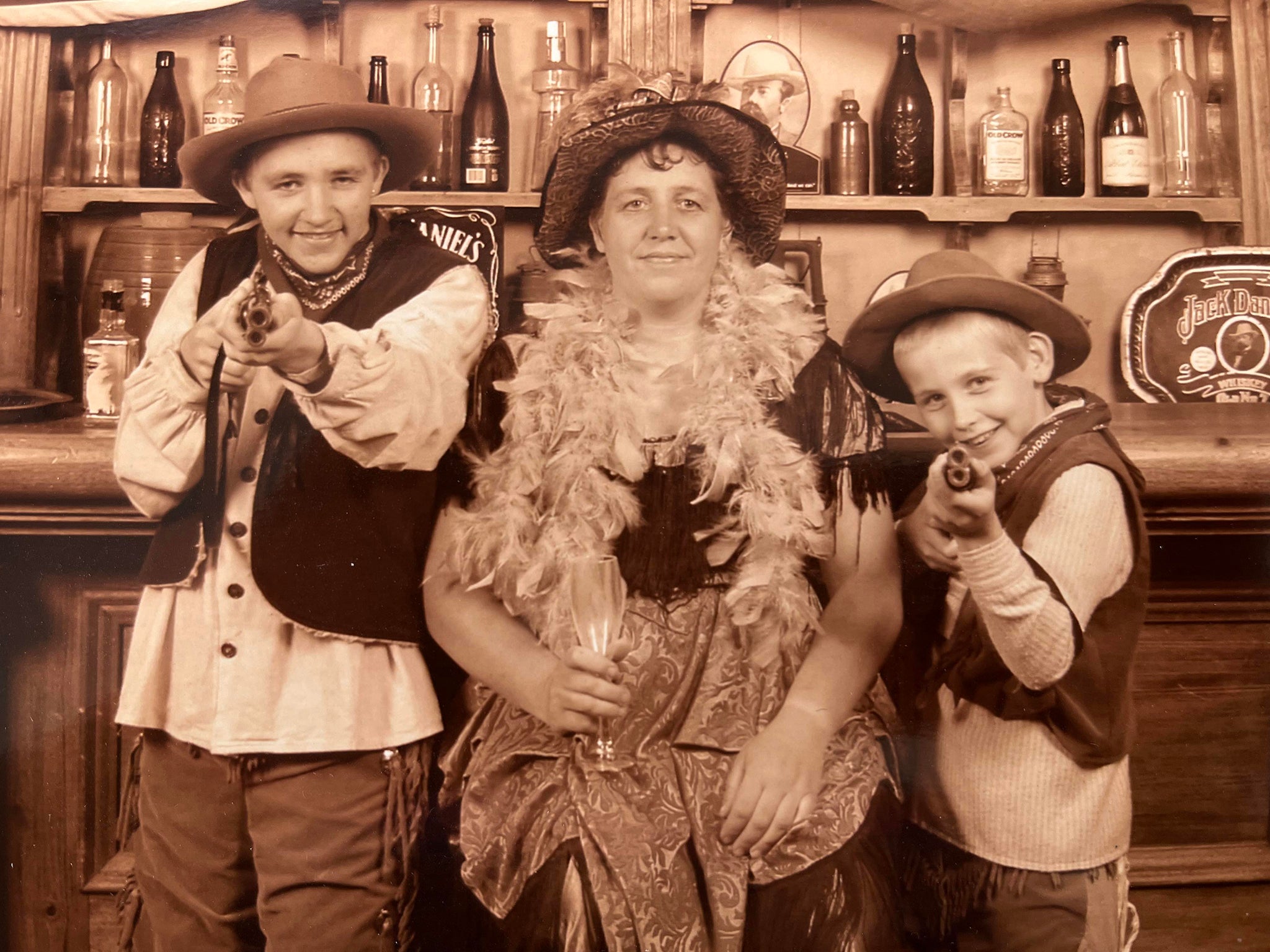
‘He was not coping’
When he was 19, Essex County Council placed Nicholas in a flat – but with visits from carers only three mornings a week, rather than the high level of supported living he needed. Without any help, his problems worsened.
His mum says: “Nicholas was unable to manage cleaning or cooking on his own. He needed more support but was not given it. He started to become less verbal. It was clear he was not coping.”
Have you been affected by the issues in this report? Get in touch with rebecca.thomas@indepedendent.co.uk
He was moved again, this time to a home for those with substance abuse issues. As he struggled to move around, Nicholas was forced to drag himself across the floor to get help. Constant banging came from the rooms around him, while the smell of cannabis lingered outside. He says: “I’d stay in my room here to try to avoid them because I should not be around people like that.”
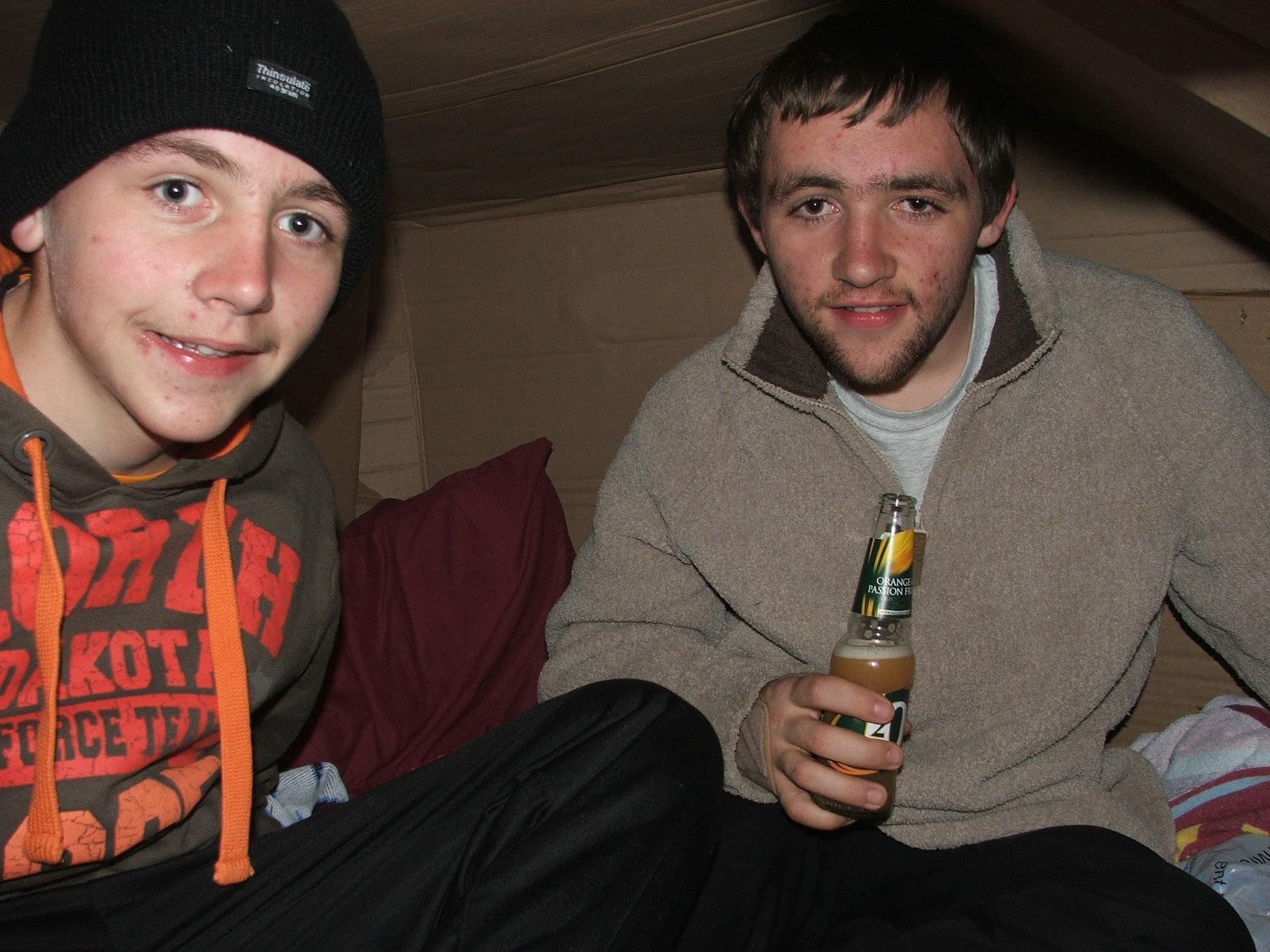
It was at this time that Nicholas stopped speaking almost completely, able to communicate only by typing. But rather than being given more support, he was evicted for not taking care of his home. With nowhere to place him, the council sent him alone by coach to stay with his estranged grandparents in Lincolnshire.
“I was crying a lot, and my mum was, too,” he says. “We had spent one last day together in Essex before I had to go. My mum wasn’t able to have me at hers and I had nowhere to go.”
We had spent one last day together in Essex before I had to go
He lived in a caravan for six months in his grandparents’ front garden before his social worker organised an emergency placement with the Salvation Army.
Almost completely without support, Nicholas accidentally overdosed on his pain medication and was taken to Boston Hospital A&E. It was here, under the care of the NHS, that Nicholas says he faced the worst abuse that he experienced in a decade of poor care.
‘Life was taken away from me’
For eight months in 2018, he was kept on a general hospital ward, surrounded by loud noises and bright lights that exacerbated the sensory issues related to his autism. He was confined to his bed, traumatised as patients died around him.
He developed huge bed sores. Nicholas also alleged at one point that a nurse held a pillow over his face – they were later investigated by the trust, which then reported the matter to the police.
Nicholas claims: “The nurse came in and started to punch me and say [they] hate people with disabilities, then got a pillow and held it over my face. It was lucky the cleaning lady saw it and stopped [them]. They [hospital staff] would stand at the door making animal noises at me.”
Watch Nicholas’s story in Independent TV’s latest On The Ground episode
United Lincolnshire Hospitals NHS Trust (which runs Boston Hospital) said the alleged incident with the pillow, in 2018, was investigated in line with its policies and referred to external agencies including safeguarding and the police. They said Nicholas’s other concerns were referred to the local safeguarding team for investigation, but “our understanding is that none of these were upheld”.
Lincolnshire Police said they referred the case for prosecution but it was then “discontinued” by the Crown Prosecution Service.
Nicholas told The Independent that he was not interviewed directly by local safeguarding about his allegations of poor care and abuse at Boston Hospital.
The nurse came in and started to punch me and say [they] hate people with disabilities
Next, he was placed in a care home for elderly dementia patients in the West Midlands for six months, segregated and confined to his room for 24 hours a day. Loud noises and alarms went off at all hours, while other patients were able to wander in and out of his room. “One of the inpatients was a severely imbalanced lady and she was going into his room and poking him and trying to touch him,” says his sister, who called the home “scary”.
“I shouldn’t have been there,” says Nicholas. “I was stuck in my room all the time, they refused to let me out of bed. I’m not an old person, so why was I even there?”
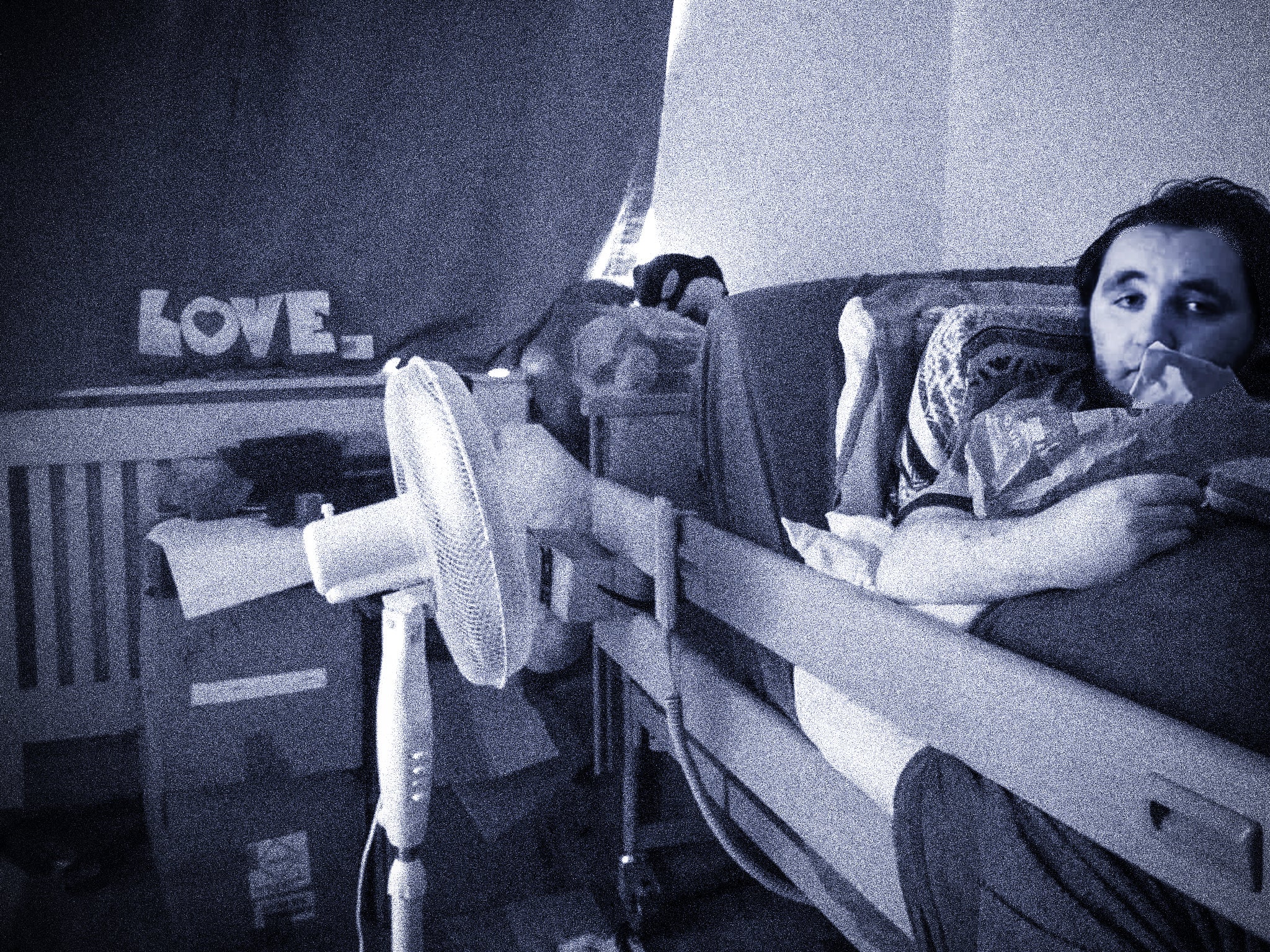
In 2019 he was detained at another psychiatric unit in Colchester. Since then, there has been no improvement in his care. Nicholas has continued to face indignity and even abuse at every turn, as well as being moved to different parts of the country, far away from his family and friends.
He says: “When they started putting me in unsuitable places after the hospital and moving [me] all over the country, that life was taken away from me – the social life I had with my friends and my family, the contact I had with friends and family, being able to hug my family.”
At a supported living placement in Wales in 2020, he says he was abused by staff, stripped naked, and left on a bed with no sheets, eventually losing the use of one of his arms. At this home, staff also made animal noises at him while he struggled on the floor, Nicholas recalls.
Life was taken away from me, the social life I had with my friends and my family
He was moved to a short-term ward connected to an A&E department in Cardiff in 2021, surrounded by the chaos of an emergency department, and had to stay there for 17 months. His mum, Emma, says: “They could not cope with his needs. The ward environment was extremely difficult for him. It was loud, bright and chaotic. They would not bring him food to fit his sensory needs.”
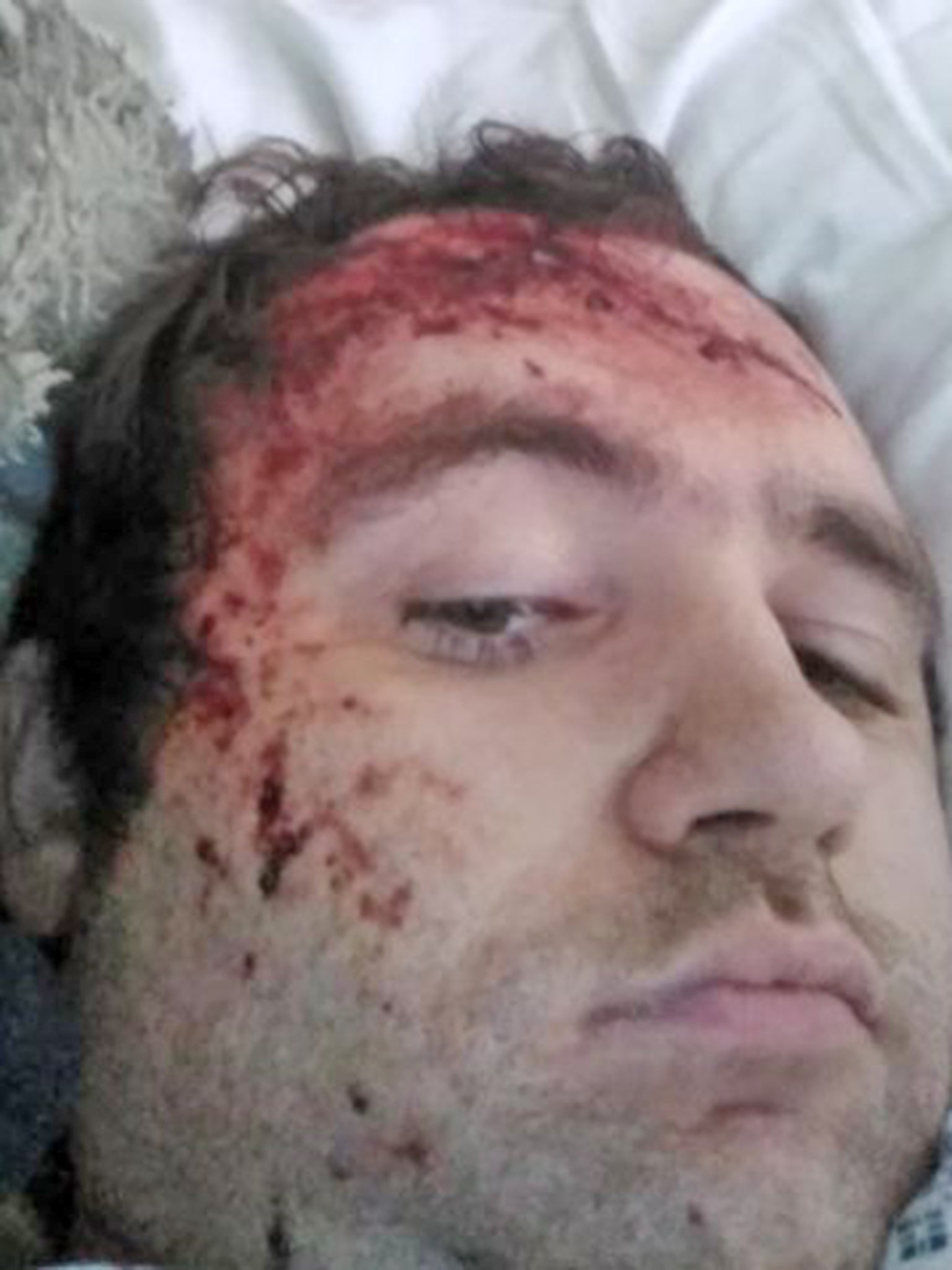
He was moved only when a mental health assessment meant he was sectioned again, placed in Hafan y Coed mental health unit, physically restrained and given medication. Then in June this year, he was moved to Rochford mental health unit, part of Essex University Partnership NHS Trust, a facility that was recently the subject of an exposé by Channel 4’s Dispatches regarding the mistreatment of patients and the unnecessary use of restraint. The hospital is also facing a public inquiry into the deaths of inpatients.
“This is the worst place yet,” he says. “I’ve been to a lot of bad places but this hospital is the first one where I am genuinely worried for my life because of the way I’m being treated here, injected, restrained. Alarms go off a lot, people scream a lot, smash things, bang doors ... it really hurts.”
Essex Partnership University NHS Foundation Trust said it could not comment on individuals but insisted patients were treated with care and compassion.
A spokesperson for Cardiff and Vale University Health Board, which runs the Hafan y Coed mental health unit, said it could not comment on individual cases but added: “The use of chemical restraint is not practised within Cardiff and Vale University Health Board.”
The organisation said it works “within the least restrictive environment possible”, adding that at times it may be necessary for staff to intervene if a patient is at risk of harm and that it uses “safe hold” techniques as a last resort in emergency situations.
‘Treated worse than a caged animal’
Nicholas’s story is filled with horror, but it is not unique. There are 2,005 people in the UK who, like him, are being forced into inappropriate care – half of them incarcerated for more than two years.
There are 205 children with learning disabilities and autism who are in inpatient units, as he was, in the UK. There are many more suffering, like he has, because they cannot receive the most basic physical care.
Their stories come as a four-year inquiry has condemned the government for failing to act and reduce the 115 people with learning disabilities and autism who are currently held in solitary confinement in hospitals.
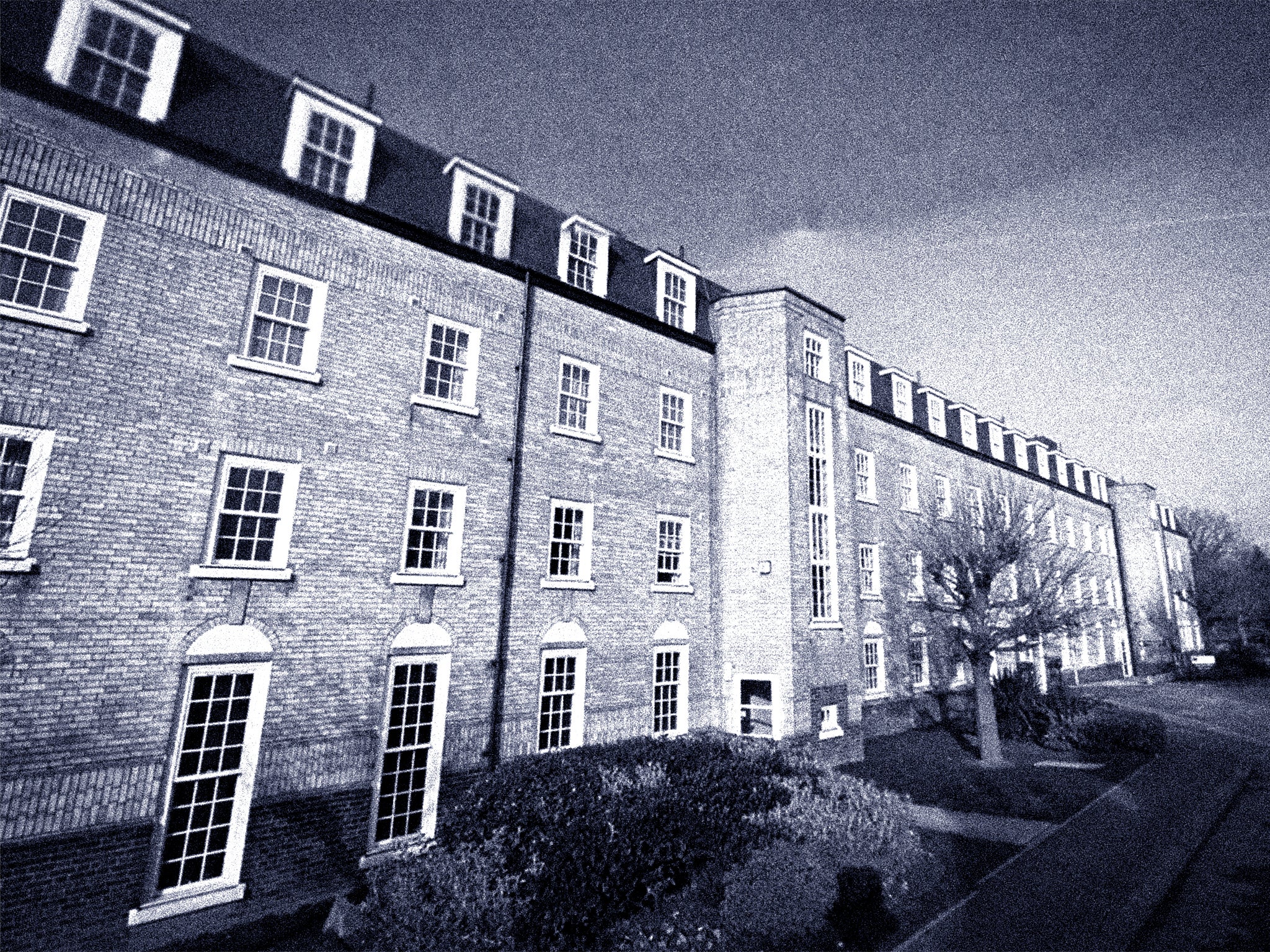
“The way Nicholas has been treated ... it’s like he hasn’t got a right to life. He’s been treated worse than a caged animal,” says his sister Alex.
“The experience opens your eyes to how people can be so cruel to others. You know, autism isn’t a mental illness, they just function differently. The last 10 years of fighting has been like banging your head against a brick wall or tree, because nobody really listens. It’s as if nobody cares. [Essex] try and palm me off, fob us off. You’re trying to speak to people, make calls, but people don’t always answer. It’s just so frustrating. Especially as he’s not the only one that’s going through that, but he is my brother, and when I can’t help him it’s awful.”
Essex County Council said it works to ensure that complex cases receive the right level of support, and that it would carefully consider the concerns raised.
In his room at Rochford Hospital, a camera watches Nicholas’s every move, which he feels is invading any chance he has of privacy. Nicholas is forced to wear sunglasses to shield his eyes against the bright light seeping into the room despite a dark sheet hanging over the locked, frosted glass door to the outside. And he now fears that his laptop will be taken away.
Watch Nicholas’s story in Independent TV’s latest On The Ground episode
Nicholas says that, if he could choose, he would rather be sedated until he can leave the unit than remain conscious through the horrors he is facing every day. Essex Partnership University NHS Foundation Trust said it could not comment on individuals but, again, insisted that patients are treated with care and compassion.
His mother says: “I don’t want to see him like this. He needs and deserves proper care and a life.”
Now Nicholas’s mental health section has been lifted, there is no reason for him to be in a hospital unit, except that the authorities cannot agree on funding for a place to house him where he can be cared for properly and given a chance to live the life he so desperately wants.
Join our commenting forum
Join thought-provoking conversations, follow other Independent readers and see their replies
Comments